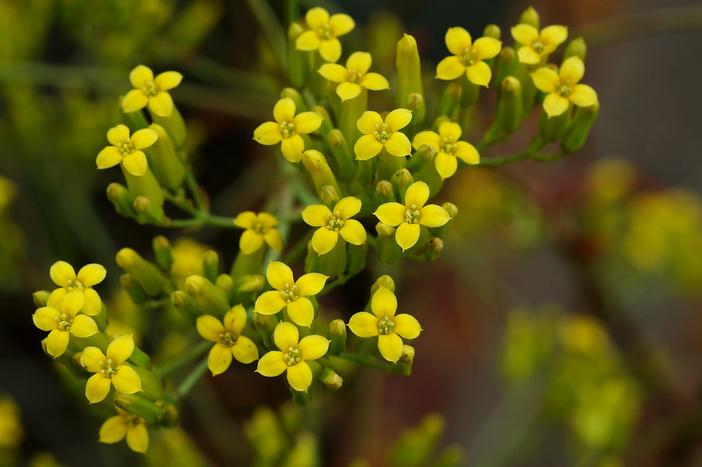Tugela Cliff-Kalanchoe
(Kalanchoe longiflora)
Tugela Cliff-Kalanchoe (Kalanchoe longiflora)
/
/

Tatters ✾
CC BY-SA 2.0
Image By:
Tatters ✾
Recorded By:
Copyright:
CC BY-SA 2.0
Copyright Notice:
Photo by: Tatters ✾ | License Type: CC BY-SA 2.0 | License URL: https://creativecommons.org/licenses/by-sa/2.0/ | Uploader: Tatters ✾ | Publisher: Flickr






Estimated Native Range
Summary
Kalanchoe longiflora, commonly known as Tugela Cliff-Kalanchoe or Long-Flower Kalanchoe, is a succulent shrub native to rocky outcrops and slopes in Southern Africa. It is a member of the Crassulaceae family and is adapted to a semi-arid climate where it experiences periods of drought. This plant typically grows up to 400mm high and has quadrangular, fleshy but woody-based branches that lie on the ground with tips growing upward. The leaves are a striking, light bluish-grey-green, coated in a waxy bloom, with edges and aged leaves turning pinkish to reddish-brown. The yellow flowers, which are quite showy, bloom from late autumn to winter, adding seasonal interest to the garden.
Kalanchoe longiflora is valued for its heat and drought tolerance, as well as its ability to change foliage color from deep green to crimson under environmental stress. It is an excellent choice for containers, rock gardens, ground cover, and arid landscapes. The plant thrives in well-drained porous soil, preferably in clay pots to enhance drainage, and requires abundant airflow. Bright light or full sun is essential for maintaining the vibrant coloration of the leaves, although it can tolerate part shade. Watering should be done when the soil feels dry to the touch, and the plant must be protected from frost. To encourage a more robust and faster growth, regular watering and feeding with compost are recommended. However, it is important to avoid overwatering as this can lead to root rot.CC BY-SA 4.0
Kalanchoe longiflora is valued for its heat and drought tolerance, as well as its ability to change foliage color from deep green to crimson under environmental stress. It is an excellent choice for containers, rock gardens, ground cover, and arid landscapes. The plant thrives in well-drained porous soil, preferably in clay pots to enhance drainage, and requires abundant airflow. Bright light or full sun is essential for maintaining the vibrant coloration of the leaves, although it can tolerate part shade. Watering should be done when the soil feels dry to the touch, and the plant must be protected from frost. To encourage a more robust and faster growth, regular watering and feeding with compost are recommended. However, it is important to avoid overwatering as this can lead to root rot.CC BY-SA 4.0
Plant Description
- Plant Type: Succulent, Subshrub
- Height: 1-2 feet
- Width: 1-2 feet
- Growth Rate: Moderate
- Flower Color: Yellow
- Flowering Season: Fall, Winter
- Leaf Retention: Evergreen
Growth Requirements
- Sun: Full Sun, Part Shade
- Water: Low, Medium
- Drainage: Medium, Fast
Common Uses
Bee Garden, Bird Garden, Butterfly Garden, Drought Tolerant, Groundcover, Hummingbird Garden, Low Maintenance, Rock Garden
Natural Habitat
native to rocky outcrops and slopes in Southern Africa
Other Names
Common Names: Long-Flower Kalanchoe
Scientific Names: , Kalanchoe longiflora,
GBIF Accepted Name: Kalanchoe longiflora Schltr.